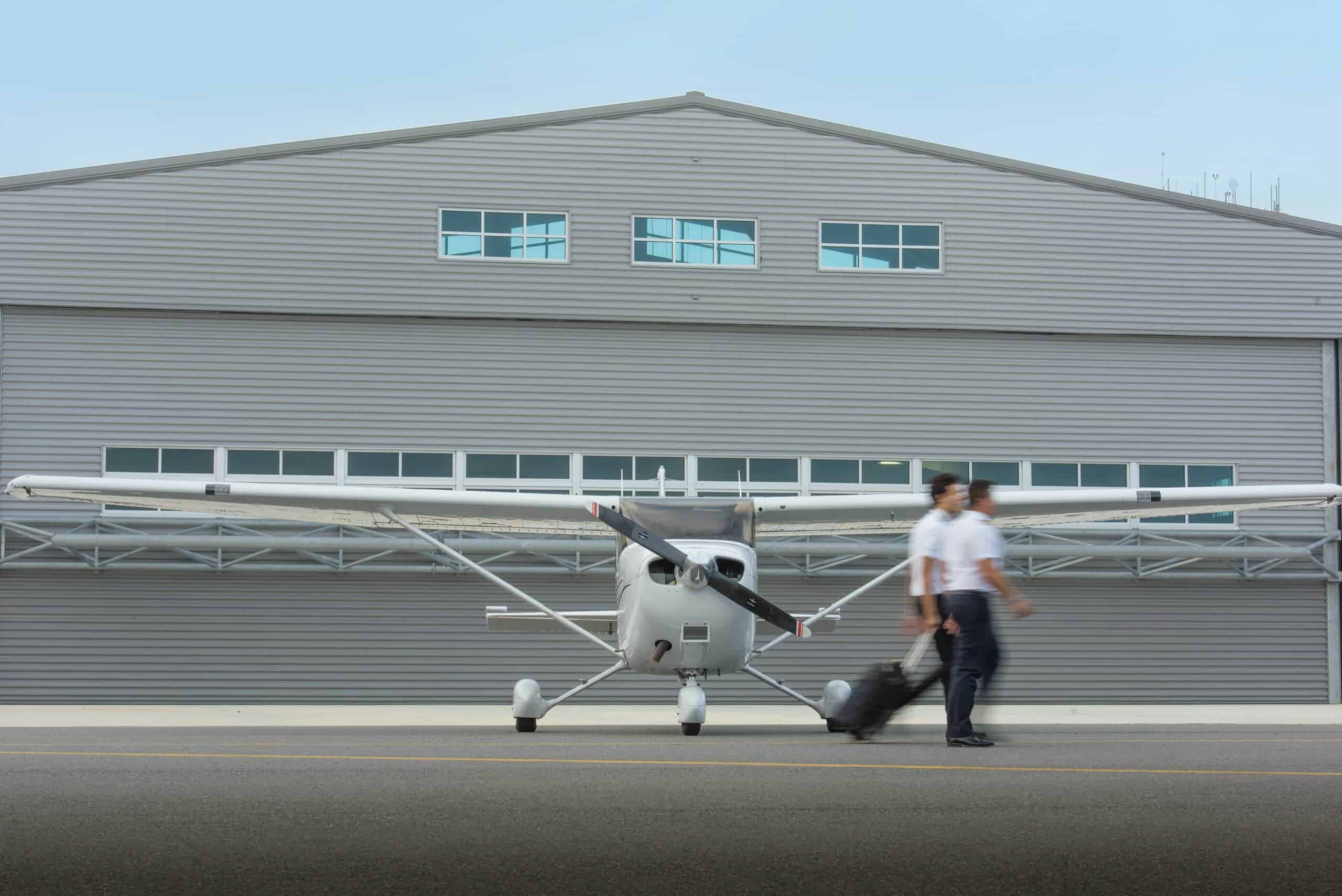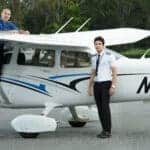What is DGCA Exam? #1 Ultimate Guide to Getting Your Pilot License

If you’ve ever dreamed of becoming a pilot in India, one question is bound to come up: What is DGCA Exam? This crucial exam, overseen by the Directorate General of Civil Aviation (DGCA), is a key step in the journey to earning your pilot license. It’s designed to evaluate your grasp of essential aviation concepts and regulations, ensuring that you have the knowledge and skills to fly safely and competently.
In this ultimate guide, we’ll dive into everything you need to know about the DGCA Exam. We’ll explore its structure, eligibility requirements, and tips for effective preparation. Whether you’re just starting to think about a career in aviation or are already preparing for the exam, this guide will walk you through the steps necessary to reach your goal of becoming a licensed pilot in India.
What is DGCA Exam: Understanding Its Importance in Aviation
Before answering the question, ‘What is DGCA Exam?’ and diving into the details of how to prepare for it, let’s start by understanding exactly what is DGCA Exam and why it’s essential for pilot licensing in India. The DGCA Exam is a comprehensive series of tests designed to assess your knowledge and readiness to become a licensed pilot.
The Directorate General of Civil Aviation (DGCA), is India’s regulatory body for civil aviation and oversees all aspects of aviation safety, licensing, and regulatory compliance. Every pilot in India, whether aspiring to fly commercially or privately, must pass the DGCA Exam to ensure they meet the country’s aviation standards.
By passing the DGCA Exam, you demonstrate to the DGCA and future employers that you possess the knowledge, skills, and commitment required to safely operate an aircraft. The DGCA Exam covers topics crucial to aviation safety and knowledge, such as meteorology, air navigation, air regulations, and technical aspects of aircraft. Passing this exam is non-negotiable if you wish to earn a pilot’s license and is one of the most challenging steps on the path to the skies.
What is DGCA Exam? Eligibility Requirements: Are You Ready to Take the Test?
Now that we’ve covered what is DGCA Exam and its importance, let’s discuss the eligibility criteria. Not everyone is eligible to take the DGCA Exam; the DGCA has set specific requirements that aspiring pilots must meet before registering. The main eligibility criteria include age, educational background, and medical fitness.
For the DGCA Exam, candidates must be at least 18 years old for a Commercial Pilot License (CPL) and have completed at least 10+2 education with a focus on physics and mathematics. This requirement is designed to ensure that you have a foundational understanding of the mathematical and scientific concepts essential to aviation. If you did not take physics and mathematics during your high school education, you could complete an equivalent certification from the National Institute of Open Schooling (NIOS) or another recognized institution.
Medical fitness is also crucial, as flying requires not only mental acumen but also physical stamina and health. Candidates are required to undergo a Class I Medical Examination at a DGCA-approved medical center to determine their fitness. The medical exam assesses vision, hearing, cardiovascular health, and overall physical fitness. Those who pass these medical tests are cleared to proceed with the DGCA Exam and other licensing requirements.
What is DGCA Exam Format and Structure?
Understanding the format and structure of the DGCA Exam is essential for effective preparation. The DGCA Exam is divided into multiple sections covering core areas of aviation knowledge, ensuring that pilots have a solid grasp of fundamental topics.
The DGCA Exam has four main subject areas:
1. Air Navigation: This section evaluates your knowledge of navigation principles, charts, and how to plot and track courses during flight. Navigation is essential for pilots to accurately plan routes, account for wind patterns, and arrive safely at their destinations.
2. Meteorology: Weather plays a critical role in aviation, as conditions such as wind, precipitation, and cloud cover directly impact flight safety. This section of the DGCA Exam assesses your understanding of weather patterns, cloud formations, and meteorological phenomena.
3. Air Regulations: In this section, you’ll be tested on the aviation rules and regulations governing flight in Indian airspace. Pilots must be well-versed in these regulations to ensure compliance and safety.
4. Aircraft Technical Knowledge: The technical knowledge section examines your understanding of the aircraft itself, including engines, control systems, and other mechanical and electronic components. This knowledge is fundamental to maintaining and operating aircraft safely.
Each subject area includes multiple-choice questions and practical applications, and passing each section is necessary to earn a qualifying score on the DGCA Exam. The specific passing score may vary by section, but candidates should aim to achieve a high score in each to ensure a well-rounded understanding of aviation principles.
What is DGCA Exam?: Preparation Tips and Resources
Preparation for the DGCA Exam requires dedication, time management, and access to quality resources. Aspiring pilots often dedicate several months to studying for the DGCA Exam, as it encompasses a broad range of knowledge and skills. Flying schools across India like the Florida Flyers Flight Academy India offer preparatory courses specifically tailored for the DGCA Exam, providing candidates with structured curriculum and practice exams.
Begin your preparation by gathering study materials that align with the DGCA Exam syllabus. Many reputable flying schools offer study guides and practice exams that reflect the format and content of the actual DGCA Exam. These materials often include subject matter explanations, real-life examples, and practice questions for each section. Practice exams are particularly helpful as they allow you to test your knowledge, identify areas for improvement, and become familiar with the format of the DGCA Exam.
Additionally, online resources such as aviation forums, study apps, and e-books can provide supplementary information and tips from individuals who have successfully passed the DGCA Exam. Some online courses offer video lessons, quizzes, and interactive resources to make studying more engaging. Remember, the DGCA Exam requires not only memorization but also the ability to apply concepts in real-world scenarios. Regular review, practice, and consultation with instructors at your flying school can significantly improve your chances of success.
What is DGCA Exam? Costs and What to Expect Financially
When considering a career as a pilot in India, understanding the financial aspects of the DGCA Exam is essential. One of the primary questions aspiring pilots often ask is: what is DGCA Exam cost? The fees for the exam itself can vary, but it’s crucial to have a comprehensive understanding of all potential expenses involved in the process.
DGCA Exam Fees: The fees for the DGCA Exam are set by the Directorate General of Civil Aviation and are typically around INR 3,000 to INR 5,000. This fee covers the examination itself, which includes the theoretical tests on subjects like Air Navigation, Meteorology, Air Regulations, and Technical Knowledge of Aircraft. It’s important to check for any updates or changes in fees on the official DGCA website, as these costs can fluctuate.
Additional Preparation Costs
Beyond the exam fees, candidates should also budget for other necessary expenses during their preparation:
Study Materials: Quality study materials are crucial for success in the DGCA Exam. These can include textbooks, online courses, and practice tests. Depending on what you choose, expect to spend anywhere from INR 5,000 to INR 15,000 on these resources.
Medical Examination: Before you can take the DGCA Exam, you must undergo a Class I Medical Examination at a DGCA-approved medical facility. The cost for this medical check-up typically ranges from INR 5,000 to INR 10,000. This examination assesses your overall health, vision, hearing, and other physical criteria necessary for flying.
Ground School and Training: Most aspiring pilots enroll in flying schools to receive structured training that includes ground school classes. Tuition fees can vary significantly based on the institution and the training package selected. You can expect to pay between INR 6 lakhs and INR 30 lakhs for comprehensive pilot training programs that cover both ground school and flying hours.
Simulator Training: Some flying schools also offer simulator training as part of their curriculum. This training is invaluable for gaining practical experience before flying actual aircraft. Simulator training costs can range from INR 1,000 to INR 2,500 per hour, depending on the school and the equipment used.
Flight Hours: The cost of flying hours can be one of the most significant expenses in your training. Rates for renting an aircraft typically range from INR 15,000 to INR 25,000 per hour, depending on the type of aircraft used for training. Most commercial pilot programs require a minimum of 200 flying hours, which can add up to anywhere from INR 30 lakhs to INR 50 lakhs or more for the total flight training.
The Role of Flying Schools in DGCA Exam Preparation and Training
Flying schools play an essential role in preparing students for the DGCA Exam and beyond. These schools offer a structured curriculum covering the theoretical and practical aspects of aviation, ensuring that students gain a thorough understanding of the material covered on the DGCA Exam. Attending a reputable flying school not only provides you with a wealth of knowledge but also equips you with the flying hours and skills necessary for pilot certification.
During your time at a flying school, you’ll receive instruction from experienced pilots who can offer valuable insights and mentorship. Most flying schools provide simulators, hands-on training, and access to real aircraft, allowing students to practice what they’ve learned. By the time you complete your training, you’ll have developed the skills and knowledge needed to pass the DGCA Exam and embark on a career in aviation.
Registration Process: How to Sign Up for the DGCA Exam
The registration process for the DGCA Exam is straightforward, but it’s essential to complete each step accurately to avoid delays. Begin by checking the DGCA website for the latest information on exam dates, application deadlines, and required documentation. Once you’re ready to apply, gather the necessary documents, including proof of education, medical fitness certificate, and identification.
Next, submit your application through the DGCA’s official portal and pay the required fees. After your application is reviewed and approved, you’ll receive confirmation of your exam date. Preparing well in advance will give you the best chance of success, so plan your study schedule accordingly.
Common Challenges in the DGCA Exam and How to Overcome Them
The DGCA Exam is rigorous, and many candidates face challenges when attempting it. Common difficulties include managing the breadth of material, understanding complex technical concepts, and dealing with the time constraints of the exam. However, these challenges can be overcome with diligent preparation, consistent study habits, and a focused mindset.
To tackle the large volume of information, create a structured study plan that allows you to review each subject in depth. Breaking down topics into manageable sections and setting weekly study goals can help keep you on track. For technical concepts, use diagrams, videos, and practical applications to solidify your understanding. Finally, practice time management by completing timed practice exams to simulate the test environment.
After the DGCA Exam: What Comes Next?
Once you’ve passed the DGCA Exam, you’re one step closer to achieving your pilot’s license. However, the journey doesn’t end here. Following the DGCA Exam, candidates must complete the required flying hours, pass practical assessments, and demonstrate proficiency in actual flight operations. The next step after passing the DGCA Exam is to log the necessary flight hours, typically completed with a flying school. During this stage, you’ll gain hands-on experience with different flight maneuvers, emergency procedures, and real-world navigation.
After accumulating the required flight hours, candidates undergo a final check ride—a practical test conducted by a certified flight examiner. Successfully passing this test, along with meeting the minimum flight hours, qualifies you for a Commercial Pilot License, enabling you to pursue a career as a professional pilot.
Conclusion: What is DGCA Exam and Your Path to Becoming a Pilot
What is DGCA Exam is not just a question; it’s a fundamental step on your journey to becoming a pilot in India. This exam, overseen by the Directorate General of Civil Aviation, serves as a gateway to your future in aviation. Understanding its structure, requirements, and significance is crucial for any aspiring pilot.
As you embark on this journey, remember that preparation is key. Invest time in your studies, utilize resources from reputable flying schools, and create a structured plan to tackle the exam’s challenges. With dedication, discipline, and the right support, you can navigate through the complexities of the DGCA Exam and emerge successfully.
Once you’ve passed the DGCA Exam, you’ll be well on your way to logging the required flight hours and gaining practical experience. Keep in mind that this journey requires a significant commitment in terms of both time and finances, but the rewards of flying high above the clouds and pursuing your passion for aviation are well worth the effort.
As you progress, stay connected with fellow students and professionals in the field, as networking can lead to valuable opportunities and insights. The aviation community is vast and supportive, and learning from others can enhance your journey.
In conclusion, the DGCA Exam is a crucial milestone in your path to becoming a licensed pilot. By understanding the exam’s requirements, preparing diligently, and pursuing your dream with determination, you can successfully navigate the skies of your aviation career.
Now that you are informed about what the DGCA Exam entails, it’s time to take your first steps toward your pilot license. Equip yourself with knowledge, seek guidance from experienced mentors, and prepare to soar into the world of aviation.
Contact the Florida Flyers Flight Academy India Team today at +91 (0) 1171 816622 to learn more about the Private Pilot Ground School Course.



